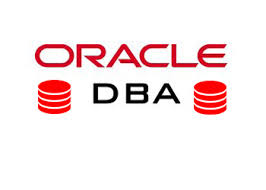About this course
Week 1: Introduction to Oracle Database
Session 1: Overview of Database Concepts
- What is a database? Types of databases
- Introduction to relational databases
- Oracle Database architecture and components
Session 2: Oracle Database Editions and Licensing
- Understanding different Oracle editions
- Licensing models and considerations
- Installation prerequisites
Week 2: Installation and Configuration
Session 3: Installing Oracle Database
- Preparing the environment for installation
- Step-by-step installation of Oracle Database
- Post-installation configuration
Session 4: Oracle Database Management Tools
- Introduction to Oracle SQL Developer
- Using Enterprise Manager (EM) for database management
- Command-line tools for Oracle DBA
Week 3: Database Architecture and Structure
Session 5: Oracle Database Architecture
- Understanding Oracle memory structures (SGA, PGA)
- Background processes in Oracle
- Tablespaces and data files
Session 6: Schema Objects
- Overview of schema objects: tables, indexes, views, sequences
- Creating and managing schema objects
- Data types in Oracle
Week 4: User and Security Management
Session 7: User Management
- Creating and managing database users
- Assigning roles and privileges
- Best practices for user management
Session 8: Security Best Practices
- Implementing security measures for Oracle databases
- Auditing and monitoring database activities
- Introduction to Oracle Data Redaction and Virtual Private Database
Week 5: Backup and Recovery
Session 9: Backup Strategies
- Overview of backup types: cold, hot, and incremental backups
- Implementing RMAN (Recovery Manager) for backups
- Best practices for backup and disaster recovery planning
Session 10: Recovery Techniques
- Understanding the recovery process
- Performing point-in-time recovery
- Flashback technology in Oracle
Week 6: Performance Tuning and Optimization
Session 11: Performance Tuning Fundamentals
- Understanding performance tuning concepts
- Identifying performance bottlenecks
- Using Oracle Enterprise Manager for performance monitoring
Session 12: SQL Tuning
- Analyzing and tuning SQL queries
- Using the SQL Tuning Advisor
- Understanding execution plans
Week 7: Data Manipulation and SQL
Session 13: Introduction to SQL
- Basic SQL commands: SELECT, INSERT, UPDATE, DELETE
- Joining tables and using subqueries
- Introduction to PL/SQL
Session 14: Advanced SQL and PL/SQL
- Creating and managing stored procedures and functions
- Error handling in PL/SQL
- Using triggers and packages
Week 8: Advanced Database Administration
Session 15: Oracle Database Networking
- Understanding Oracle networking architecture
- Configuring listeners and services
- Troubleshooting connectivity issues
Session 16: Partitioning and Data Management
- Introduction to table partitioning
- Implementing and managing partitions
- Using Oracle Data Pump for data import/export
Week 9: Oracle High Availability
Session 17: Introduction to High Availability
- Understanding high availability concepts
- Overview of Oracle RAC (Real Application Clusters)
- Implementing Oracle Data Guard for disaster recovery
Session 18: Oracle GoldenGate
- Introduction to Oracle GoldenGate for replication
- Configuring and managing GoldenGate
- Use cases for data replication
Week 10: Cloud and Oracle Database
Session 19: Oracle Cloud Infrastructure (OCI)
- Overview of Oracle Cloud services
- Deploying and managing Oracle databases in the cloud
- Security and compliance in Oracle Cloud
Session 20: Migrating to Oracle Cloud
- Strategies for database migration
- Tools for migration: Data Pump, GoldenGate
- Best practices for cloud migration
Week 11: Monitoring and Maintenance
Session 21: Database Monitoring Techniques
- Using Oracle Enterprise Manager for monitoring
- Implementing alerts and notifications
- Routine maintenance tasks
Session 22: Patch Management and Upgrades
- Applying patches to Oracle databases
- Planning and executing database upgrades
- Best practices for maintaining Oracle environments
Week 12: Final Review and Project Presentation
Session 23: Review of Key Concepts
- Recap of major topics covered
- Q&A session for clarifications
- Preparing for the final assessment
Session 24: Capstone Project Presentation
- Presenting individual or group projects
- Discussing lessons learned and experiences
- Course feedback and next steps for further learning
Assessment:
- Participation in Sessions: 10%
- Quizzes on Key Concepts: 20%
- Hands-on Labs: 30%
- Final Capstone Project: 40%
FAQ
Comments (0)






